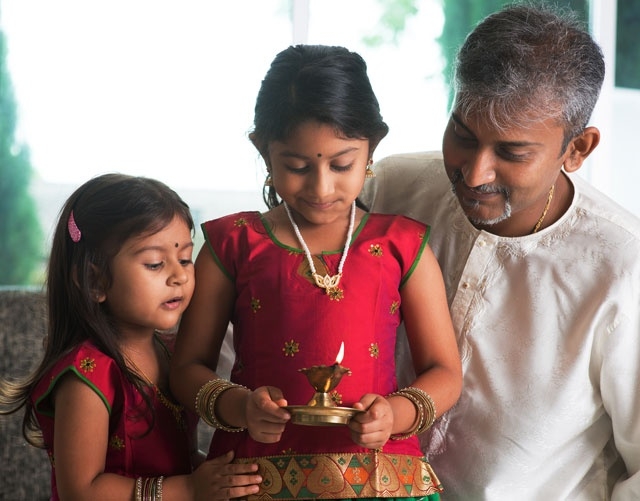Families in early childhood programs may have a range of religious backgrounds or nonreligious belief systems. Preschoolers won’t grasp all of a religion’s core concepts, but they can begin to see that families around them have different beliefs.
Working with children
Having a religion (or no religion) may be central to a family’s identity. Rituals and holidays may be key parts of a child’s family life. Every child needs for you respect and value their family’s beliefs.
Ask family members to share with the class some of their religion’s traditions.
- Make clear that they don’t have to “preach” or to explain an entire belief system. Celebrations and foods are often interesting to young children. For example, Elham’s mother might tell how their family observes Ramadan and offer a taste of the sweet dates they use to break their fast.
- With advice from families, find children’s stories and information books to share that accurately depict their religions or belief systems.
- Learn and teach appropriate holiday greetings. For example, a Hindu child might enjoy hearing “Have a fun and colorful Diwali!” from classmates during that festival.
Explain simply what “religion” or “belief” means. For example, groups of people all around the world are guided by big ideas about how the world works, how to treat people and other living things, and how to celebrate important times.
Consider ways a family’s religion might affect a child in school.
- Ask about food-related traditions. For example, Jewish and Muslim families will not want their children to eat foods that contain pork. Plan cooking projects around ingredients that all students can eat.
- Rethink classroom activities grounded in a religion. For example, Easter craft projects could make a child feel excluded if their family doesn’t observe Easter.
- If a family believes they should not observe birthdays or holidays, ask if the child can learn about others’ holidays, as long as they don’t participate in a party or celebration.
Gently but firmly correct children’s mistaken ideas. “Not all families celebrate Christmas. Many families have other holidays that matter to them. Some families do not have holidays.”
Working with families
- Ask families if they have “multicalendar lives.” For example, Eunice’s family may attend Catholic Mass, but they may also travel to a pueblo in New Mexico for traditional feast days.
- Be aware that some families may face bias, discrimination, or danger in the community because of their religions, so they may be reluctant to reveal much about their religious practices.
Let all families know that your program values and protects religious diversity and views it as an opportunity for all children to learn more about the world.


 PDF
PDF